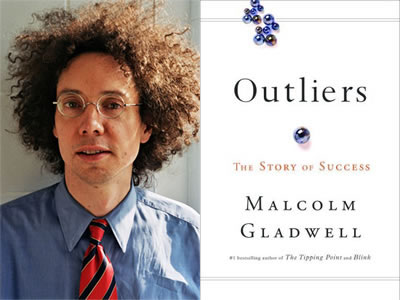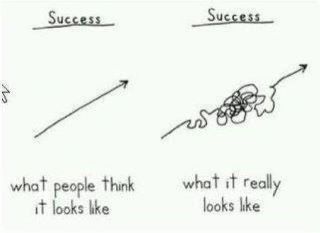Outliers: The Story of Success by Malcolm Gladwell – Review

Outliers: The Story Of Success is a best-selling non-fiction book by New Yorker writer, Malcolm Gladwell.
In this book Gladwell attempts to answer the age old question - what factors contribute to extremely high levels of success?
"There is something profoundly wrong with the way we look at
success. [...] We cling to the idea that success is a simple function of
individual merit and that the world in which we grow up and the rules
we choose to write as a society don't matter at all."
To do so, he looks at the background of some highly successful people including Bill Gates, Steve Jobs, Bill Joy, J. Robert Oppenheimer, The Beatles, Joseph Flom as well as general populations, institutions and cultures including Jews, Asians, pilots, KIPP and hockey players.


"It's not enough to ask what successful people are like. [...] It is only by asking where they are from that we can unravel the logic behind who succeeds and who doesn't.”
He also proposes answers to questions such as:
- Why are a disproportionate number of Canadian Hockey players born in the early months of the year?
- How much practice does it take to become elite at a skill?
- Why are high IQ genius’ real world achievements so disproportionate to their test scores?
- Why are asian’s good at math?
- Can our cultural background predict our behaviour?
- Can children from low-income backgrounds perform as well at school as children from high-income backgrounds?
Criticism of the book have been leveled at the conclusions the book draws from small amounts of data, the selective use of anecdotal and statistical information only in the interest to support the author’s views and overemphasis on American subjects in case studies.
Overall, I thought the book was very well written by Gladwell, weaving together richly descriptive anecdotal, statistical and interpretive elements very neatly to make it an engaging and pleasurable read, as well as raising ideas that are worth investigating further.
Whilst this isn’t a self-help book, there are some lessons you can draw and apply to your life - what I took out of it was to achieve an extremely high level of success you need a combination of factors at play:
- Achieveing mastery at a skill through dedication, consistency and hard work over a long period of time (Gladwell alludes to the 10, 000 Hour Rule)
Lesson: devote yourself to mastering a skill that you are very passionate about
- Being born in the right era relevant to your mastered skill can give you a significant advantage (see Bill Gates, Steve Jobs, Bill Joy, Joe Flom’s case studies)
Lesson: find out what opportunity waves are present in the current era or (better yet) predict what will be in the future – how can you use your greatest skill(s) to make best use of these opportunities? How can you put yourself in the right place, at the right time like a skilled surfer to ride the waves better than everyone else?
- An extremely high IQ isn’t a reliable predictor of ‘real-world’ success (see the Christopher Langan chapter)
Lesson: don’t sweat it if you don’t sweat it if Mensa rejects you, it is more important that you are highly disciplined, think innovatively and can influence people with your ideas.
- Your family (parents) and cultural background (when and where you were born) matter
Lesson: look at how your background and what advantages/disadvantage it might provide to you – seek to maximise your advantages and minimise your disadvantages.




